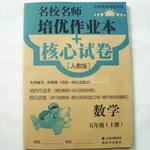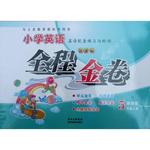
“Passengers _____ not have their breakfast on the light train”. This rule arouses heated debates in Chongqing.
A. may B. shall C. can D. should
B
【解析】
试题分析:句意:“乘客不得在轻轨上吃早餐。”这个规定在重庆引起了热烈的争论。shall在陈述句表示说话者的允诺、告诫、威胁、命令、规定、必然性等,主要用于第二、三人称。如:
1. You shall have a sweet. 你会吃到一块糖。(表允诺)2. You shall do as you please. 你可以随意行事。(表允诺)3. He shall suffer for this. 他将为此受苦。(威胁)4. Each competitor shall wear a number. 每个参赛者要戴一个号码。(表规定),解题关键词:rule. 故B正确。
考点:考查情态动词的用法。


 名校名师培优作业本加核心试卷系列答案
名校名师培优作业本加核心试卷系列答案 全程金卷系列答案
全程金卷系列答案科目:高中英语 来源:2014届四川省高二10月月考英语试卷(解析版) 题型:阅读理解
“We do look very different; we’re older. Leo’s 38, I’m 37. We were 21 and 22 when we made that film. You know, he’s fatter now -- I’m thinner.” So says Kate Winslet, who is thrilled at the 3-D re-release of Titanic to coincide with the 100th anniversary of the ship’s demise. “It happens every time I get on any boat of any kind." She recalls. There are all the people who want her to walk to the front of the ship and re-create her famous pose, arms flung wide. Most people remember the tragedy: The British passenger ship—said to be unsinkable—hit an iceberg and sank on April 15, 1912, during its maiden voyage from England to New York City. More than 1,500 people died. But little known is what the world learned from the sinking to prevent future incidents.
Probably the greatest deficiency (不足) of the Titanic was that she was built 40 years before the widespread use of the wonderful invention radar (雷达). Her only defense against icebergs and hidden obstacles was to rely on manned lookouts. On that fateful night the eyesight of trained lookouts only provided 37 seconds of warning before the collision.
Traveling at nearly 30 miles an hour, the Titanic was moving far too fast to avoid the huge iceberg. The warning did prevent a head-on collision as the officer on the bridge managed to turn the ship slightly.
The last ship to which it could send an SOS message was the California. She was within ten miles of the Titanic during the disaster, but her radio operator went to bed at midnight and never received any of the SOS messages from the Titanic. That was one of the important lessons learned from the catastrophe, the need for 24-hour radio operators on all passenger liners.
Another lesson learned was the need for more lifeboats. The Titanic remained afloat (漂浮) for almost three hours and most of the passengers could have been saved with enough lifeboats.
1,500 passengers and workers died in the 28 degree waters of the Atlantic. Out of the tragedy, the sinking did produce some important maritime reforms. The winter travel routes were changed to the south and the Coast Guard began to keep an eye on the location of all icebergs. The new rules for lifeboats were obvious to all. There must be enough lifeboats for everybody on board.
The most important lesson learned was that no one would ever again consider a ship unsinkable—no matter how large or how well constructed. Never again would sailors place their faith in a ship above the power of the sea.
1.The text mainly tells us ______.
A.the reason why the Titanic sank in the Atlantic Ocean
B.how the unsinkable ship of Titanic sank in the Atlantic Ocean
C.the lessons that we could learn from the accident of the Titanic
D.the things we should do to protect the lives on the ship
2.According to the passage, which of the following could we infer?
A.If the captain had been more careful, he could have had the chance to save the Titanic.
B.If radar had existed 40 years ago, the Titanic would have never disappeared from the world.
C.If the lookout had had much more experience, he could have had the time to save the Titanic.
D.If there had been enough lifeboats on the Titanic, the Titanic would not have sunk in the Atlantic.
3.What would be the best title for the passage?
A.Lessons from the Titanic B.Technology is Important
C.Demands of Passengers D.Power of Sea
4.What’s the sailors’ attitude towards the ships after the tragedy?
A.They think there really exists the unsinkable ship.
B.They think ships could eventually defeat the sea.
C.They think there is no power that could control the sea.
D.They think the bigger the ship is, the safer it is.
查看答案和解析>>
科目:高中英语 来源:2012-2013学年上海市青浦区高考一模(即期末)英语试卷(解析版) 题型:单项填空
Every passenger boarding the Titanic filled with confidence that the ship was unsinkable.
A.was B.had been C.has been D.is
查看答案和解析>>
科目:高中英语 来源:2014届河北省高一3月月考英语试卷(解析版) 题型:完型填空
A passenger told an air hostess that he needed a cup of water to take his medicine when the plane just took off. She told him that she would 21 the water in ten minutes.
Thirty minutes later, when the passenger’s ring for 22 sounded, the air hostess realized it at once. She was kept so 23 that she forget to deliver him the 24 . As a result, the passenger was 25 to take his medicine. She hurried over to him 26 a cup of water, but to her surprise he 27 it.
In the following hours on the 28 , each time the air hostess passed by the 29 , she would ask him with a 30 whether he needed help or not. But the passenger 31 paid attention to her words.
When he was going to get 32 the plane, the passenger asked the air hostess to 33 him the passenger’s booklet(意见簿). She was very 34 . She knew that he would write down 35 words, which might result in the loss of her job. 36 with a smile she handed it to him.
Off the plane, she 37 the booklet and cracked a smile, 38 the passenger put it, “On the flight, you asked me whether I needed help or not for twelve times 39 . How can I refuse your twelve sincere smiles?”
That’s 40 ! Who can refuse twelve sincere smiles from a person?
|
1. |
|
|
2. |
|
|
3. |
|
|
4. |
|
|
5. |
|
|
6. |
|
|
7. |
|
|
8. |
|
|
9. |
|
|
10. |
|
|
11. |
|
|
12. |
|
|
13. |
|
|
14. |
|
|
15. |
|
|
16. |
|
|
17. |
|
|
18. |
|
|
19. |
|
|
20. |
|
查看答案和解析>>
科目:高中英语 来源:2013届新疆农七师高级中学高二下学期第二阶段考英语试卷(解析版) 题型:完型填空
Twenty years ago I drove a taxi for a living. One night I went to pick up a passenger at 2:30 AM. When I 21 -,I found the building was dark except for a single light in a ground floor 22
I walked to the door and knocked “Just a minute” answered a weak elderly 23
After a long pause the door opened. A small woman in her eighties stood 24 me by her side was a small suitcase. I took the suitcase to the car and then 25to help the woman. She took my arm and we walked 26 toward the car.
She kept thanking me for my kindness. “It’s nothing” I told her. “I just try to 27 my passengers the way I would want my mother treated.” “Oh you’re such a good man.” She said. When we got into the taxi she gave me an address and then asked“Could you drive 28 downtown”
“It’s not the shortest way” I answered quickly.
“Oh I’m 29 ” she said. “I’m on my way to a hospice临终医院. I don’t have any 30 left. The doctor says I don’t have very long.”
I quietly reached over and 31 the meter计价器.
For the next two hours we drove through the city. She 32 me the building where she had once worked the neighborhood where she had lived and the furniture shop that had once been a ballroom where she had gone 33 as a girl.
Sometimes she’d ask me to slow down in front of a 34 building and would sit staring into the darkness saying nothing.
At 35 she suddenly said” I’m tired. Let’s go now.”
We drove in silence to the 36 she had given me. “How much do I 37 you” she asked. “Nothing.” I said. “You have to make a living” she answered. “Oh there are other 38 ” I answered. Almost without thinking I 39 and gave her a hug. She held onto me tightly. Our hug ended with her remark“You gave an old woman a little moment of joy.”
I walked into the 40 morning light. Behind me, a door shut. It was the sound of the closing of a life.
|
1. |
|
|
2. |
|
|
3. |
|
|
4. |
|
|
5. |
|
|
6. |
|
|
7. |
|
|
8. |
|
|
9. |
|
|
10. |
|
|
11. |
|
|
12. |
|
|
13. |
|
|
14. |
|
|
15. |
|
|
16. |
|
|
17. |
|
|
18. |
|
|
19. |
|
|
20. |
|
查看答案和解析>>
科目:高中英语 来源:山东省齐河县2009-2010学年高二下学期期中考试英语试题 题型:阅读理解
More perhaps than any other European nation, the Swiss have got used to looking after foreign travelers. As early as the 18th century, wealthy French, Germans and Italians were treating the country as an amusement center while, in the 19th century, it became the major holiday playground for the British nobles. Today, it attracts visitors from all over the world.
The Swiss are clear about the importance of tourism to their economy, which makes up about eight percent of the Gross Domestic Product, and helps industry greatly. Managers of hotels from all over the world go to Switzerland to learn how to do the job, and a high standard can be expected from the great majority of the country’s hotels, most of which are small and pride themselves on personalized service. Public transport is the best in Europe. Both the Swiss Federal railways and the private railways are fully electric-powered, and the total network consists of about 5,000 kilometers of track.
Under the Fly Baggage system passengers can check luggage in at 116 railway stations and have it automatically transferred to their flight. The national highway system is equally well planned, and the mountain roads offer views of some of the country’s most breathtaking scenery. Also serving the mountains is an effective system of railways and cable ways, while more than 160 passenger cars cross the lakes and rivers. Hiking in the mountains is equally popular with Swiss nationals and foreign visitors. For those who want to view the country from a great height without having to climb the mountain themselves, it is always possible to take in the view from a balloon.
1. Compared with other European countries, Switzerland ________.
A. places more importance on entertainment
B. thinks more about foreign travelers
C. has more convenient public transport
D. has more five-star hotels
2. According to the passage, Switzerland is now visited by ________.
A. wealthy French people
B. rich Germans and Italians
C. British nobles
D. people from various countries
3. According to the passage we learn that ________.
A. most of the hotels in Switzerland are big
B. all the hotels in Switzerland offer exactly the same service
C. most of the hotels in Switzerland offer first class service
D. the hotels in Switzerland are accustomed to learning from the rest of the world
4. The Fly Rail Baggage system is a service to transport your luggage between the railway station and ________.
A. the airport B. the hotel
C. the motorway station D. the cable ways
5. The passage mainly tells us about ________.
A. scenery in Switzerland
B. the life in Switzerland
C. tourism in Switzerland
D. the transportation in Switzerland
查看答案和解析>>
湖北省互联网违法和不良信息举报平台 | 网上有害信息举报专区 | 电信诈骗举报专区 | 涉历史虚无主义有害信息举报专区 | 涉企侵权举报专区
违法和不良信息举报电话:027-86699610 举报邮箱:58377363@163.com